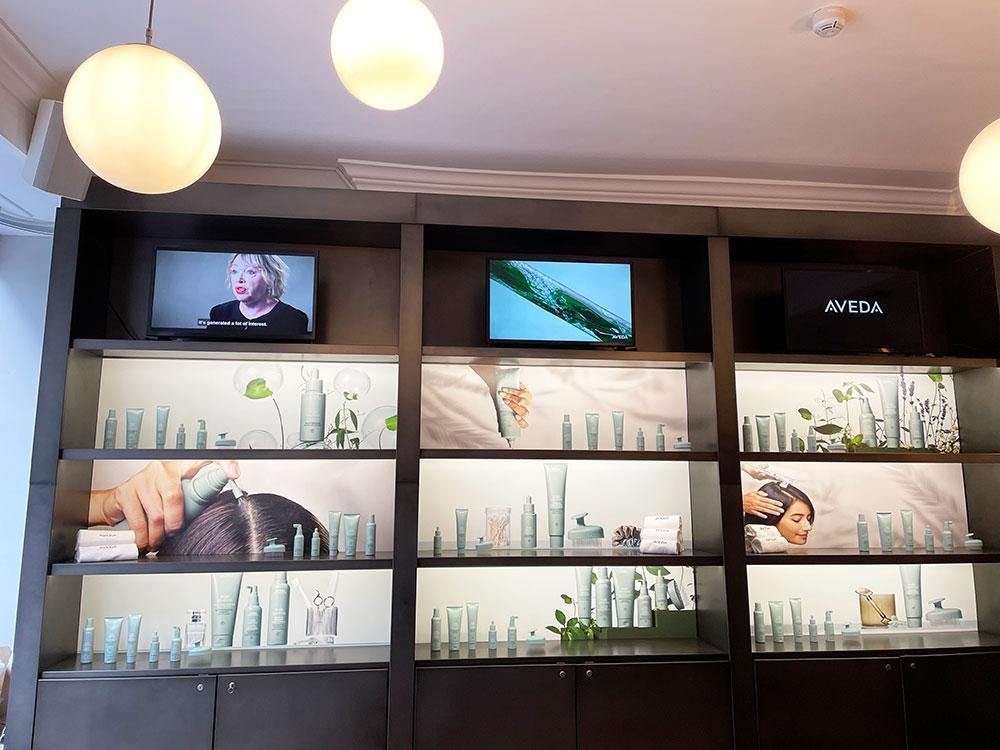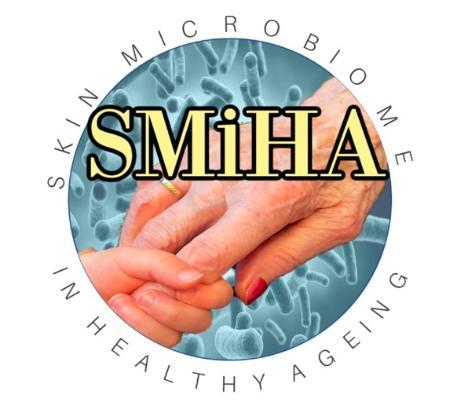Health and beauty research continued
Our previous article focused on how work at the Centre for Skin Sciences (CSS) underpins the science of many beauty and skincare products, and this work has continued, particularly in the case of the ongoing relationship with global cosmetics company Aveda. The centre is also continuing its projects on hair loss and skin health and conducting fascinating work on the skin microbiome. We talked to Dr Gillian Westgate, Business Development Manager for the Faculty of Life Sciences, about the current work in progress.

Dr Gillian Westgate
The University of Bradford has had a relationship with the global hair care brand Aveda since 2015, focusing research on the biology of hair ageing by understanding the role of the dermal environment, its effects on the hair follicle and how that leads to changes in the hair fibre. Prof Julie Thornton, Director of the Centre for Skin Sciences, travelled to London in March 2023 to take part in the UK launch of their latest product range, Scalp Solutions, that includes serums, sprays, shampoos, conditioners and scalp treatments.

Product display at Aveda London including a video of Prof Julie Thornton talking about the partnership with University of Bradford.
Dr Westgate describes the context for the products:
“Scalp is a category in the hair care market which has grown substantially over the last few years and a lot of high-end brands are developing products which care for the scalp skin. So, the scalp has gone from being chiefly about dandruff and something you don't talk about, to being about very precious skin that you need to nourish and protect. Scalp health has links with hair disorders, whether those are more cosmetic like acute hair shedding that occurs on an infrequent basis, right through to complete loss of all hair in alopecia universalis.”
Part of the University’s relationship with Aveda is about providing fundamental insights into female scalp ageing for training their staff, as Dr Westgate explains:
"Aveda have a strong brand with a retail presence across the world, and our Aveda staff training programmes help to improve their understanding of scalp and hair problems and general hair health, giving them confidence in communicating with their customers. Cosmetics brands must be careful about their claims about product benefits, so it helps to have a whole picture from a credible source. Further to this, all the work that we do is published with Aveda which helps to give the brand credibility and in turn gives consumer confidence."
In addition to the work in industry, The Centre for Skin Sciences continues to be a world-leading research environment examining cellular and molecular processes underlying skin and hair biology. Dr Westgate explains why the centre is uniquely placed to deliver innovative health solutions:
“Our expertise is in studying primary cells and tissues from ethically sourced donor human skin, such as from a hospital operation, and we can isolate melanocytes (cells that produce melanin), keratinocytes (cells found in the outer layer of the skin), fibroblasts (a type of cell that contributes to the formation of connective tissue), hair follicles and various other cell types.
We employ those skills when investigating different dermatological problems. For example, Dr Lucy Trevor, one of the fellows at the Plastic Surgery and Burns Research Unit (part of CSS) has just finished her PhD project looking at the fibroblasts in skin after radiation therapy; in someone who has had breast cancer, the glands in the armpit are targeted with radiotherapy but surrounding skin can become ‘tight’, limiting arm movement. She found for the first time that there are still stem cells in the tissue, indicating that the tissue can regenerate meaning there is potential to improve that condition for women. She acquired tissue from women who had undergone radiation therapy, so our strong links with transplant clinics, cosmetic surgeons, etc. are vital for this work."
Understanding hair loss, including male and female pattern hair loss is also one of the main aspects of research at the CSS over the years. The centre houses a vast collection of cells that have been isolated from scalp biopsies from women of all ages for its work into hair ageing. Other research is interested in an inflammatory autoimmune hair condition called alopecia areata (where hair is lost in unpredictable patches), which includes projects with the Alopecia UK charity investigating cells in alopecia tissue samples from patients as well as partnering with companies developing novel therapeutics both in the UK and internationally.
Another area where we hope to make an impact is regarding skin melanogenesis (the production of melanin pigments), with discussions ongoing with a company about an innovative technology that was developed at the University and patented in 2009. The hope is that the technology can be developed into a formulation that can provide skin protection against UV damage naturally using a peptide that mimics the way that the skin makes its own melanin.
There is also a focus in CSS on understanding the skin microbiome, and Dr Westgate explains how they are developing an understanding of this area of research:
"We received a grant to set up the Skin Microbiome in Healthy Ageing (SMiHA) network as one of eleven funded networks in ageing research across the UK. The government's aim is to grow a world-leading research base for understanding ageing physiology and behaviour, including exercise and diet, and we are the only network focusing on the skin, specifically the skin microbiome. We know that as people age, the skin microbiome changes and there is a greater susceptibility to infection, so we want to understand whether the microbiome can be influenced to maintain resilience against disease or to improve wound healing, for instance, to provide a benefit for people in their frail years."

But there’s a lot more to understand about the skin microbiome, including maternal to baby transmission, the influence of types of birth and breastfeeding, and how we get our microbiomes from family members and pets. Researchers are also finding microbes in tumours, so the microbial presence in tumours is starting to become a realistic target for cancer treatments.
"The skin microbiome is a growing field of science where all the areas of knowledge aren’t quite joined up yet, but we've developed really good links with industry including large companies like Unilever as well as startups, researchers and clinicians within our SMiHA network, and we are working hard to win grants to fund larger projects of research in this area and to expand our network internationally."
Read more about the research themes of the Centre for Skin Sciences, and more details of our REF2021 results, including a selection of videos and case studies.
